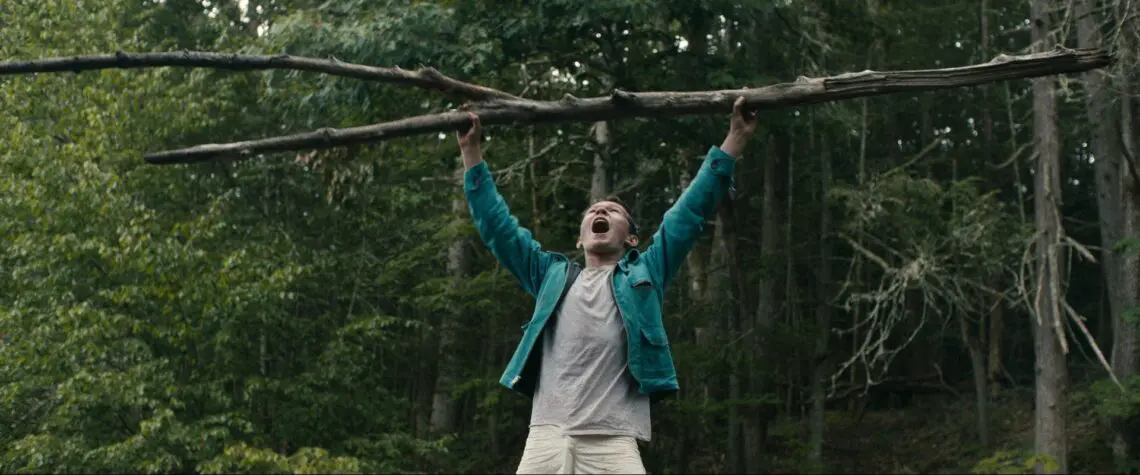Lost on a mountain in Maine: facing survival in the wild
Lost on a Mountain in Maine presents itself with a straightforward title that bluntly prepares you for the story. However, this family-friendly true-life drama is not about shocking twists; it’s about the journey. And from the start, Donn Fender’s (Luke David Blumm) story assures viewers of a happy ending, as guaranteed by director Andrew Boodhoo Kightlinger and writer Luke Paradise, adapted from the memoir co-written by the real Donn Fender.
A family’s ordeal
Set in 1939 Newport, Maine, the film centers around the 12-year-old Donn Fender and his demanding father, Donald (Paul Sparks), amidst the backdrop of the Great Depression. The father-son dynamic is characterized by tough love, stemming from the belief that the harsh world outside does not spare anyone, especially during such trying times. This tension is palpable as Donald often has to make sacrifices, like canceling a much-anticipated fishing trip due to work commitments, leaving Donn feeling neglected and resentful.
In an attempt to make amends, Donald offers a brief hiking trip up Mount Katahdin, the highest mountain in Maine. What seems like a simple gesture of reconciliation turns dire when a sudden storm hits, and Donn’s stubbornness leads him to continue upward, resulting in his separation from the group and a nine-day ordeal in the unforgiving wilderness.
Themes of survival and resilience
For younger viewers, Lost on a Mountain in Maine is reassuring as it never lets the peril overshadow the certainty of Donn’s safe return. It portrays a story where bravery and survival are central themes, without inducing fear. This is crucial for parents watching with children, ensuring that the film remains an accessible and educational tale of hope and endurance.
Adult viewers may find the sporadic suspense engaging, particularly amplified by Idan Menin’s cinematography, which beautifully captures the constraints and vastness of the Northern Maine wilderness. The film’s aesthetics enhance the narrative, making the wilderness itself a prominent character in Donn’s survival journey.
Character dynamics and performances
One of the notable strengths of the film is its well-cast characters. Luke David Blumm, portraying young Donn, effectively evolves from a sulky, borderline-bratty boy to a resilient survivor, convincing the audience to root for him. His transformation is compelling, displaying the growth forced upon him by nature’s harsh trials.
Donald Fendler’s character, portrayed by Paul Sparks, embodies the era’s demand for resilience and self-reliance. His tough exterior, softened by occasional glimpses of vulnerability, offers depth to the father-son relationship dynamic. Caitlin FitzGerald as Ruth, the sympathetic wife, balances the father’s sternness with compassion, representing the emotional anchor in the story.
Technical mastery and narrative depth
Examining the film from a technical standpoint, Lost on a Mountain in Maine excels in its dedication to authentic storytelling. The cinematography not only brings the wild, rugged landscape of Maine to life but also places viewers in Donn’s shoes, experiencing his cold, hunger, and isolation. The visual storytelling is pivotal, making the wilderness an immense, almost antagonistic force.
The screenplay, rooted in Donn Fender’s memoir, eschews narrative complexity in favor of a straightforward, yet heartfelt portrayal of his ordeal. The film goes beyond merely recounting events; it delves into the psychological strife of young Donn, reflecting on whether his father’s strict upbringing inadvertently prepared him for this survival test. This introspection presents a subtle yet provocative question: Would Donn’s struggle have been different under a more lenient father?
Real-life testimonials and archival touch
Interspersed with recent interviews of individuals involved in the real-life incident, including Donn’s twin brother, the narrative is grounded in reality. Such testimonials add a layer of authenticity and emotional gravity, reminding viewers of the true events that inspired the film. The concluding archival footage serves not only as a historical document but also as a poignant reminder of the era’s resilience and the impact of this ordeal on the Fender family.
Reflecting on survival and parenting
Ultimately, Lost on a Mountain in Maine is more than just a survival story. It’s a reflection on family dynamics, the harsh realities of the Great Depression, and the resilience of the human spirit. It suggests that adversity can teach invaluable lessons, sometimes embedding deeper messages that are only recognized in hindsight.
Whether you’re watching for the moving narrative, the breathtaking cinematography, or the impressive performances, Lost on a Mountain in Maine offers a fulfilling experience. This film resonates with both young and adult audiences by telling a universal story of survival, family, and personal growth.
For those interested in exploring true-life survival stories, “Lost on a Mountain in Maine” is a must-watch. Discover more about this powerful film on Lost on a Mountain in Maine.
Don’t miss out on more insights into movies and TV shows. Join our community on social media and keep abreast of the latest updates!

 Italian
Italian







